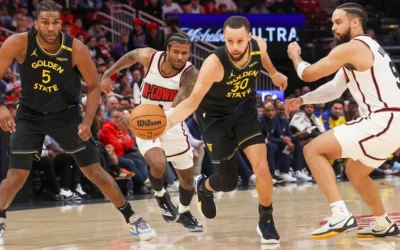The Munich Open, held at the Iphitos Tennis Club, is often a platform for both rising and established talents in the world of tennis to showcase their skills. However, this year’s event took an unexpected turn when German tennis player Alexander Zverev found himself at the center of controversy, confronting a heckler amidst a tight match. As the crowd roared with excitement, not all attention was on the court; some fans turned their focus towards Zverev’s past.
During a match against an unseeded opponent, the atmosphere shifted dramatically when a spectator shouted out references to Zverev’s alleged history of domestic abuse. These accusations, which have circulated in the media for some time, have put significant pressure on the player, who vehemently denies any wrongdoing. In a moment that showcased both the emotional strain of professional sports and the complexities of public perception, Zverev approached the umpire, urging for the removal of the disruptive fan.
The Incident Unfolds
As Zverev was preparing to serve, a voice echoed through the crowd, taunting him with references to the serious allegations he’s faced. ‘Get off the court, you abuser!’ the heckler shouted, clearly seeking to get under Zverev’s skin. Displaying remarkable composure, Zverev paused his game, walked over to the chair umpire, and expressed his need for the spectator to be ejected. The umpire, after taking a moment to assess the situation, ultimately agreed, signaling security to remove the individual.
This incident raises significant questions about the role of spectators in sports, and how emotional involvement can lead to disrespectful behavior. While heckling has long been a part of the sporting experience, the nature of the heckle can often cross lines. Zverev’s response to ask for intervention illustrated his determination to maintain the integrity of the game, but it also highlighted the ways personal lives can intrude into professional arenas.
Zverev’s Legal and Personal Battles
Alexander Zverev is no stranger to criticism and controversy, particularly following the allegations made by his ex-girlfriend, Olya Sharypova. The accusations include emotional and physical abuse, a narrative that has dominated sports headlines since they surfaced. While Zverev has continuously denied these claims and labeled them as false and defamatory, the shadow of these allegations looms large over his career.
The World Tennis Association (WTA) has been surrogately criticized for not acting with enough urgency regarding players’ off-court misconduct. Zverev’s case is emblematic of how sport organizations are often ill-equipped to handle such issues, especially when they intersect with public opinion and personal rights.
Following the initial allegations, Zverev emphasized his innocence in various interviews, stating, ‘I have never been violent to a woman in my life. I have never put my hands on a woman.’ However, the impact of these allegations has been profound, shaping how fans and the media view him. Some have called for active measures within the ATP—such as implementing stricter guidelines for player behavior and responses to allegations— to prevent athletes from facing undue pressure in and out of the sport.
The Role of Fans in Athletes’ Lives
Sports fans hold an immense power that goes beyond simply supporting their teams; they can influence the emotional and mental well-being of athletes through their actions. The incident at the Munich Open is a poignant example of how quickly a supportive crowd can turn into a hostile environment. Zverev’s plea to remove the heckler reinforces the understanding that athletes deserve respect, irrespective of any off-court issues they may be facing.
Beyond just being a contest of skill, sporting events often serve as a societal mirror. The interactions between fans and players indicate larger cultural attitudes regarding accountability, gender violence, and the nuances of public perception. For Zverev, an athlete who has worked tirelessly to build a successful career, the effort to maintain his composure amidst personal turbulent allegations is an impressive feat yet a heavy burden.
The Aftermath of the Incident
Following the match, Zverev made headlines not only for his request to eject the heckler but also for his resilience in navigating what could easily be seen as a distraction. He managed to win the match, yet the atmosphere was difficult, with the taunts serving as a reminder that while he controlled his game, the narrative surrounding him is far from under his jurisdiction.
Athletes are often celebrated for their performance on the battlefield, yet when issues arise in the courtroom or personal life, the scrutiny they face can be grueling. The public eye can shift rapidly from admiration to disdain, making it essential for organizations, fans, and players to navigate these complex interactions thoughtfully.
Implications for the Future of Tennis
The question of how to handle situations like that of Alexander Zverev will undoubtedly remain relevant in the world of sports moving forward. Zverev’s incident at the Munich Open sheds light on an urgent need for dialogues among players, management, and fans about the impact of personal allegations in the world of sports.
While emotional outbursts from fans may continue, it is crucial for organizations like ATP and WTA to ensure players can perform without feeling attacked by their past or personal situation. The removal of the heckler is a step in the right direction, but it also opens up important discussions regarding support systems for athletes who may struggle with mental health issues stemming from external pressures.
Reflections Beyond the Court
Athletes are human beings who face personal struggles similar to anyone else. Recognizing their vulnerability does not excuse misconduct but highlights the importance of compassion and understanding. As Zverev continues to compete, finding ways to separate sport from personal allegations is crucial for his success and the overall perception of professional tennis.
The interplay between an athlete’s public persona and private life is intricate. While Zverev may have successfully dealt with the heckler by having him ejected, the long-lasting impact of the allegations will remain, shaping his path in professional tennis for years to come. As fans and organizations adapt to these realities, the hope is for a more respectful discourse surrounding athletes and their careers.
Ultimately, Zverev’s experience at the Munich Open serves as a reminder that sports are not just games; they reflect societal attitudes towards accountability, respect, and the human condition. In striving for greatness, athletes must navigate a landscape that can often feel hostile, yet it is our collective responsibility to ensure this landscape is one that fosters growth, understanding, and resilience—not one that tears down its heroes.







